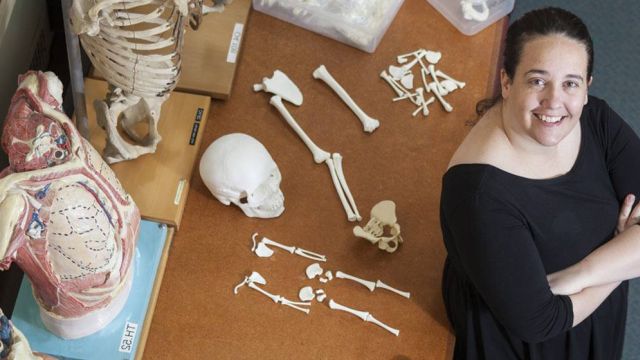New directions in child bioarchaeology: The maternal-infant nexus.

The identification and analyses of foetuses and infants from archaeological contexts provides an avenue to assess social aspects of personhood and motherhood, and the intricate relationship between maternal and infant health experience in the past. Over the past 20 years there has been an increasing recognition of the importance of children in bioarchaeological research. However, although foetuses and infants are starting to be included in the analyses of population health and isotopic studies of infant weaning and diet in the past, most bioarchaeological research focuses on individuals post-infancy.
This seminar starts to build a theoretical framework to conceptualise foetuses from the archaeological context and to identify areas for future research. Dr Siân Halcrow explores how the foetus is defined in the field, including discerning whether a baby is in-utero or not, and terminological issues. I then review the contribution that the bioarchaeology of foetuses and infants can make to understand fertility and other demographic information of a population, disease epidemiology, maternal and infant stress and the consequences of early life disease on later life experience, and cultural or social aspects of personhood. New research is presented on perinatal palaeopathology and early-life isotopic data using new incremental sampling techniques from a larger research project investigating health and dietary change in the Atacama Desert in Northern Chile during the agricultural transition.
Dr Siân Halcrow is a bioarchaeologist with a research focus on infant and child health and disease in the past. She currently works as a Senior Lecturer at the University of Otago, and is an Associate Investigator on several multidisciplinary projects investigating the effects that the adoption and intensification of agriculture has on health in the past, with a regional focus on Southeast Asia. Dr Halcrow's research is funded through sources including the New Zealand Royal Society Marsden Fund, University of Otago Research Grants, and Fulbright New Zealand. She is also a Partner Investigator on Australian Council Research Grants.
Location
Jean Martin Room (Level 3), 13 Ellery Crescent, 2601 Acton,
Speaker
- Dr Siân Halcrow
Contact
- Dr Justyna Miszkiewicz+61 2 6125 9295